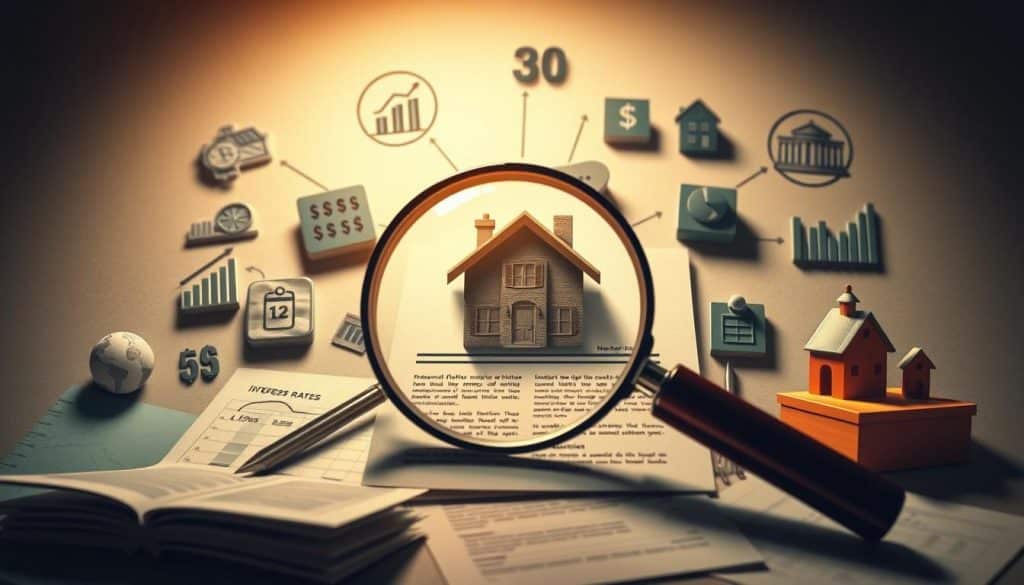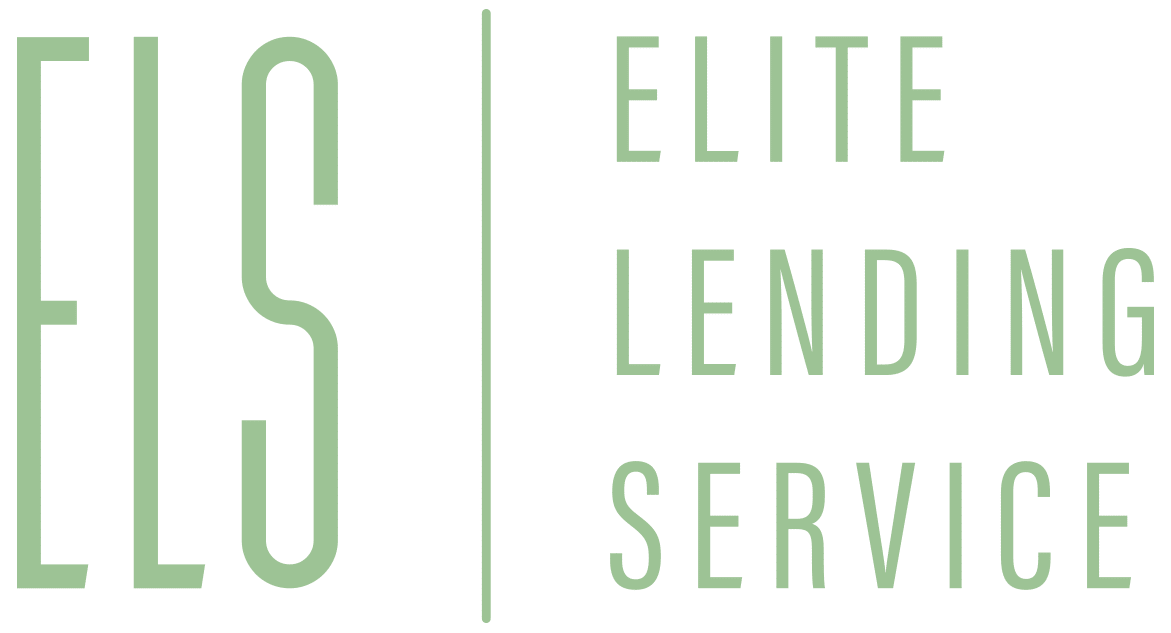Table of Contents
Ever asked yourself how are home loan rates determined?, let alone why two folks with nearly the same credit score and salary can face different offers? Understanding the forces behind mortgage rates is both eye-opening and helpful toward getting a home loan that works for you. Rates are swayed by everything from the nation’s economy to the policies at your chosen lender and, very importantly, the numbers on your own credit report.
Interest rates can push or pull a loan from manageable to strain on the budget. Knowing the levers at play—like market trends, lender type, home loan type and your unique profile—lets true mortgage shoppers tilt the scales in their favor. For a deep-dive into the key rate-drivers, you can hop over to our fuller guide.
Key Takeaways
- The Federal Reserve sets the federal funds rate to either boost or slow the economy, and this move quickly spills over into mortgage rates.
- People with strong credit scores usually get the best mortgage interest rates.
- Putting down 20% can save you from paying pricey mortgage insurance on a conventional loan.
- The property you buy—whether it’s a primary home loan or an investment—also changes the rate you’re offered.
- Loans backed by government programs like FHA or VA typically carry lower rates since lenders face less risk.
- By knowing how the market works and how your own finances stack up, you can confidently shop for a better rate.
Understanding Home Loan Rates
Understanding home loan rates is one of the first steps homebuyers should tackle. This rate represents how much it costs to borrow the cash you need to buy a home. The two most common options are fixed rates and variable rates, and each serves different needs.
What Are Home Loan Rates?
Home loan rates are how lenders charge you for the money you borrow. These rates vary based on multiple factors, such as your credit score, the size of your loan, and current economic trends. If your credit score is 740 or higher, you’ll trigger the most favorable rates. A score between 620 and 699 may result in a higher rate, and anything below 620 usually requires government-backed loans.
Fixed vs. Variable Rates
A fixed-rate mortgage locks in your interest rate for the entire length of the loan, usually 15 or 30 years. This provides steady monthly payments, making it easier to budget, especially during periods of rising rates. A variable-rate mortgage begins with a lower, introductory rate but can change, usually every year, based on market indexes. Monthly payments may increase, so borrowers should budget for the potentially higher costs down the road.
Factors Influencing Home Loan Rates
Home loan rates depend on a mix of economic trends and your personal profile. Federal economic reports, inflation, and the job market can shift rates. Simultaneously, your credit score, loan-to-value ratio, and income are crucial. Understanding how these factors interact may empower you to secure the most favorable mortgage possible.
Economic Indicators
Mortgage rates are closely tied to the health of the economy. Key signs to watch are jobs data, GDP growth, and inflation levels. If inflation starts climbing, lenders tend to hike rates to protect their profits, making the loans a little costlier.
Another big player is the bond market, especially the 10-year Treasury yield. When Treasury yields rise, mortgage rates usually follow, since investors want better long-term returns to offset the higher risk.
Inflation and Interest Rates
Inflation drives interest rates directly. When prices rise, each dollar buys less, and lenders charge more to offset the risk of getting paid back in worth-less money. A higher rate changes your monthly payment and the total payback over 30 years.
For example, a 1-point jump—from 4% to 5%—can raise your monthly mortgage payment by several hundred dollars. The difference in timing—getting locked in today versus a few months from now—can mean paying tens of thousands more over the life of the loan.
Credit Scores
Your credit score is a main factor in home loan cost and options. A score above 740 typically unlocks the lowest rates, while scores under 620 can pay thousands more in interest, or size them out of certain loans altogether.
Raising your score even a little can yield a better rate and save big over the mortgage term. The sooner you prepare, the better your options. For actionable, in-depth tips, grab this home buyer’s guide.

The Role of Lenders
Lenders play a crucial part in setting mortgage rates because they decide how much interest you’ll pay over the life of the loan. They study a bunch of factors, like your credit score, the type of home loan you want, and what’s happening in the broader economy, to decide the rate that matches the risk they take by lending to you.
How Lenders Set Rates
First, your credit score gets a close look. If the score is high, you could snag a lower rate; if it’s low, your rate usually goes up. The health of the economy also drives rates. A growing economy means more people want to borrow money, so rates could rise. A weak economy might push rates down to attract more borrowers. Lenders also review their own internal risk guidelines to set the rates they offer. Because of this, rates really do ripple up and down day to day.
Wholesale vs. Retail Rates
Understanding the difference between wholesale and retail rates can save you money. Wholesale rates go to big banks and mortgage companies that lend a ton of money; they get the best prices because of volume. Retail rates go to average home buyers, and the rates often include extra fees that the lender charges. By seeing both types of rates, you can spot pricing that balances low risk with low fees, helping you feel more confident that you’re getting a good deal.
The Impact of Location on Home Loan Rates
When you shop for a home loan, remember that where you live really matters. Rates can swing up or down based on your exact address, and understanding this can save you a pile of interest money. Areas with high living costs see more buyers lining up for mortgages, which usually pushes rates up. Meanwhile, neighborhoods with few buyers may put out more attractive terms, so a second look at an “out of the way” region can pay off.
Regional Variations in Rates Explained
Not all neighborhoods play by the same rules. Homes in in-demand areas with solid resale values and short commutes often grab the lowest rates, because lenders see those Home loan as safe bets. In contrast, the rates can climb for properties in distant or harder-to-reach areas, where demand is weaker and the market is riskier. That means your exact zip code and even the kind of road it sits on can change your mortgage cost.
State-Specific Factors Matter, Too
State choices affect rates at the federal and county levels. Laws covering property taxes, foreclosure rules, and overall economic health can create big differences among the 50 stops. For instance, one state may let lenders foreclose quickly, which can lower rates there because lenders feel confident they are safe. In another state where the process is slower, lenders may price in a risk fee that you, the buyer, eventually pay. Before you commit, dig into your area’s market rules and trends. The more informed you are, the better the home loan you can land.

Mortgage Types and Their Rates
Picking the right mortgage starts with knowing the types available and their rates, so let’s break it down simply.
Conventional Loans
Conventional loans are popular summer solutions, especially for first-time buyers who have a steady income and a credit score above 620. You can put down just 3% if you choose the right program. The catch? You’ll probably have to pay private mortgage insurance (PMI) if your down payment is under 20%. While PMI raises your monthly payment, this mortgage is usually quick to process and less paperwork than some government loans.
FHA and VA Loans
FHA loans cater especially well to first-time buyers. You can qualify with a credit score as low as 580 and a 3.5% down payment. If your score is 500, 10% down will still get you approved. The mortgage insurance premium (MIP) is a bit higher than PMI, but the flexible guidelines are worth it for many.
VA loans target qualifying military veterans and their families. You can borrow with zero down payment, and there’s no monthly mortgage insurance, a big savings. Instead, there’s a one-time funding fee, which varies based on your service and whether it’s your first VA loan.
Jumbo Loans
A jumbo loan is the type of mortgage you’re looking at when you buy a more expensive home. In 2025, any home that costs more than either $806,500 or $1,209,750 will need one of these home loan. Because of the larger amount, jumbo loans come with stricter requirements. Most lenders will not approve a loan without a credit score of at least 700. Down payments are usually 10% to 20% of the home’s price. Before you go for a pricey home, understand how these loans work so that your monthly payments stay within your budget.
How Market Trends Affect Rates
Mortgage rates are not fixed; they move according to market trends. When a lot of people are shopping for loans, lenders increase their rates to earn more interest from the surge in applications. Conversely, during an economic slowdown, the demand for mortgages drops, and rates often decrease as lenders try to entice buyers.
Staying aware of these patterns can save you money. The more you understand past and predicted trends, the easier it will be to lock in a favorable rate when you decide to buy.
Supply and Demand Dynamics
The classic law of supply and demand also applies to mortgages. When the economy heats up and more individuals and families are applying for home loans, lenders can charge a premium rate because their available funds appear scarce. In slower months, when fewer applications enter the market, lenders often cut rates to fill their quotas.
Take, for example, what happened on December 12, 2023—for the 30-year fixed-rate mortgage, Bank of America quoted a rate of 7.25% while Wells Fargo offered one at 6.50%. Such a noticeable split emphasizes that even in a single day, rates can differ for many economic and competitive reasons.
Ultimately, when fewer buyers enter the housing market, lenders are likely to lower their quoted rates in a bid to attract a larger share of any existing demand.
Current Economic Conditions
Mortgage rates and the broader economy move together. The Federal Reserve, the central bank in the U.S., runs policies that send ripples across markets, and those ripples eventually hit the mortgage world. One big lever the Fed controls is the Fed Funds rate. When that rate is nudged, mortgage rates usually follow.
When the economy stumbles, as it did during the 2008 financial crisis, mortgage rates usually fall. That’s because during uncertainty, investors move their cash into safer, more predictable investments, including mortgage-backed securities. By dropping, rates create a window that can help borrowers save even more in the long term than original estimates. By watching these broader trends, a borrower can spot that window and move more confidently.

The Underwriting Process
When you apply for a mortgage, the underwriting process plays a crucial role in deciding who gets the home loan and what interest rate they will pay. Underwriters review your entire financial picture, including credit history and debt-to-income ratio, to see whether you can manage the mortgage. Getting pre-approval for the loan is a smart move because it not only tells you how much you can afford, but also gives you a stronger bargaining position with sellers.
Importance of Pre-approval
Pre-approval is a game-changer in home buying. With a pre-approval letter, it is easy to show sellers that you are a serious and qualified buyer. The lender will thoroughly examine your finances—checking pay stubs, savings balances, and debts—so you know how much home loan you can realistically afford. That piece of paper gives you a clear price range and speeds you through the search, eliminating homes that are out of reach.
Documentation Requirements
The underwriting process will require several key documents to process your application. Be ready to provide W-2s for the past two years, pay stubs from the last 30 days, and bank statements for any accounts involved in your finances. Lenders will usually approve you for a loan that covers up to 97% of the home value, while your credit score should ideally be at least 620 to qualify for a conventional mortgage. Preparing these documents in advance can save you time and stress.
Having your mortgage documents organized from the start can cut weeks off the process. Most home loan close in about 30 to 45 days. Quick answers to any lender requests keep your application moving.
Timing Your Application
The mortgage rates you see often depend on the calendar. Rates go up and down based on the economy and the time of year. Keeping track of these cycles can help you pick the perfect moment to apply.
Best Times to Apply
Winter tends to be the sweet spot for mortgage applications. Fewer buyers mean lenders are eager for business, often offering lower rates to attract more borrowers. Rates can shift any day, though, so pay attention to national economic headlines.
When demand is lower, lenders offer better deals because they don’t have near as many back-to-back applications to process.
Seasonal Trends
Spring and summer often see interest rates climb. More families set out to buy homes, which floods lenders with applications. To keep up, lenders raise rates, squeezing the best deals away.
Understanding this pattern lets you apply ahead of the rush. Timing your application can save you thousands over the life of your loan, making a brief wait worthwhile.
Why Team Up With a Mortgage Broker
Choosing a mortgage broker can take a lot of stress out of getting a home loan. Experienced teams, like the pros at Elite Lending Service, bring a whole toolbox of perks. They streamline the mortgage journey, making it quicker and smoother for you.
What Elite Lending Service Offers You
Mortgage brokers unlock a wider menu of home loan choices. They hunt for the most competitive rates that match your budget and may showcase exclusive packages you won’t see online. They stay ahead of climbing interest rates and create routes to snag solid loan terms. By law, their fees can’t top 3 percent of the total loan amount, keeping the cost predictable.
Service Built Around You
Personalized service is the heart of what brokers do. They listen to your goals while lenders’ loan officers juggle multiple company targets. Rather than line you only to one lender, your broker handed your file to several, saving you valuable time. With one-on-one insight, they sketch out a financing blueprint tailored to your income, debts, and future plans. Time and again, that detailed touch is proven the clincher for smoother closings.
Conclusion: Sealing the Best Home Loan for You
Figuring out how mortgage rates are determined gives you a big edge when you buy a home. First, check your own numbers—credit score and existing debts matter. Pick a loan that fits your goals. Even a tiny rate drop means big savings down the road, so think carefully.
Steps After You Understand Mortgage Rates
Once you know the basics of rates, shop around. Compare offers from different lenders and explore home loan types, whether it’s a conventional mortgage or an FHA option. Keeping tabs on the market and locking a solid rate today can save you money tomorrow.
Get Expert Help with Elite Lending Service
Need extra guidance with your home loan? Elite Lending Service is ready to help. Their experts walk you through each step. To get started or to ask a quick question, call at (904) 263-0376 or drop an email to brad@elitelendingservice.com. They tailor support to match your budget and goals, making the process smoother for you.
